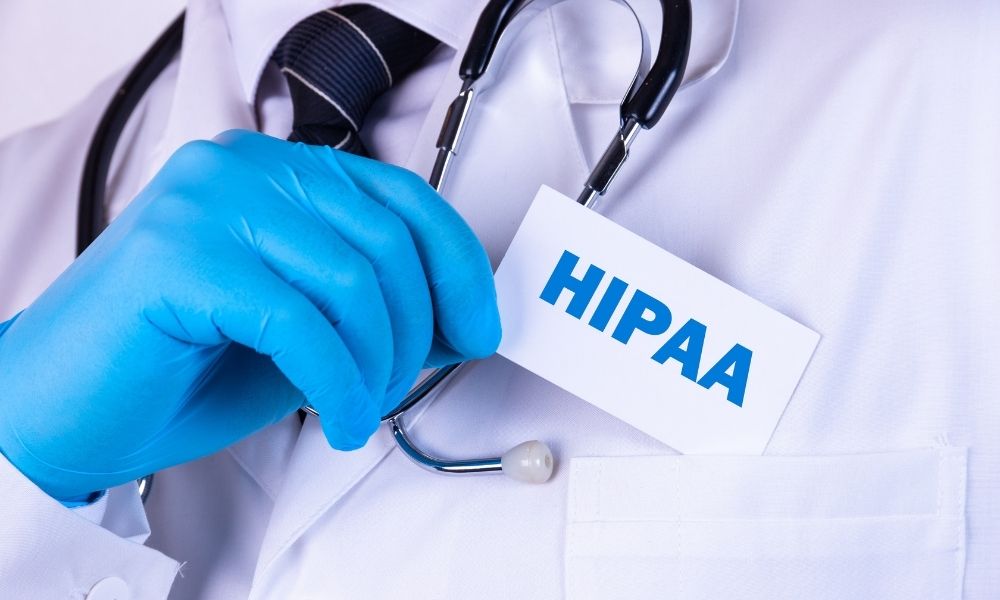The security of sensitive information is a top priority in the modern world of technology. This applies to organizations of all kinds. Health Insurance Portability and Accountability Act or HIPAA, is a law that provides guidelines for the healthcare industry on managing, storing, handling and protecting protected health information. HIPAA compliance is crucial for healthcare institutions to ensure privacy and avoid penalties, as well as maintain an excellent reputation.

HIPAA law covers healthcare providers as well as health plans, healthcare clearinghouses, as well as business associates of HIPAA-covered entities. PHI may contain any information that could be used to determine an individual such as names, addresses as well as credit card number. It also contains details regarding medical conditions and procedures. PHI is of substantial black market value due to its potential role in identity theft.
The HIPAA Privacy Rule sets forth guidelines regarding the use and disclosure of PHI. To ensure the integrity, confidentiality and accessibility of the information, covered entities must implement policies and practices. These policies must contain access controls, security incidents procedures, security-related training and other measures to protect the privacy of PHI. The covered entities should also restrict the disclosure and use of PHI to a minimum required to achieve the objective of the usage or disclosure.
The HIPAA Security Rule requires covered entities to ensure the confidentiality, integrity, and availability of ePHI by implementing appropriate and reasonable physical, administrative, and technical safeguards. These protections include access controls audit controls, integrity control, security of transmission, and contingency planning. Covered entities must also perform periodic risk assessments to determine vulnerabilities and take measures to reduce the risk.
The HIPAA Breach Notification Rule requires covered organizations to inform affected persons and the Secretary of Health and Human Services, and, in some cases media in the incident of a breach of PHI that is not secure. A breach is defined as an acquisition or disclosure or use of PHI which violates the Privacy Rule and threatens its privacy or security. To determine whether PHI might be compromised, and the potential harm caused by a breach, covered entities must perform a risk evaluation.
HIPAA compliance is a continual program of education and training. This helps employees be aware of their responsibilities in regard to privacy of patients as well as security. The covered entities are also required to carry out regular risk assessments to find vulnerabilities and put in place mitigation measures. This may include implementing security control, encrypting ePHI and establishing contingency plans in the event of a security attack.
The advancement of technology has had a significant impact on all aspects of our lives including health care. Electronic health records are a revolutionary tool that enables healthcare providers to organize and store patient information in an efficient manner. HIPAA compliance is vital due to the numerous cyber-security risks that have been uncovered. The data of patients is extremely important and must be secure in all times. HIPAA has never been more essential than it is now in light of the constant threat of cyberattacks aimed at healthcare providers. HIPAA guarantees privacy and security of patient information. It builds trust between patients and healthcare professionals.
HIPAA compliance can help healthcare facilities ensure privacy of patients while maintaining the trust of patients. Infractions to HIPAA regulations can lead to significant fines, legal action as well as reputational damage. Office for Civil Rights of Department of Health and Human Services (OCR) enforces HIPAA regulations and has the power to review complaints and investigate compliance.
HIPAA compliance is crucial for healthcare institutions to ensure privacy of patients in the digital age. HIPAA regulations provide guidelines to manage, store information, transferring and protecting health information. Healthcare providers must ensure they are following policies and procedures to comply with HIPAA regulations, conduct regular risk assessments, as well as provide regular training and education to their employees. They can stay clear of penalities for financial and legal reasons by maintaining trust among patients.
For more information, click why is hipaa important
